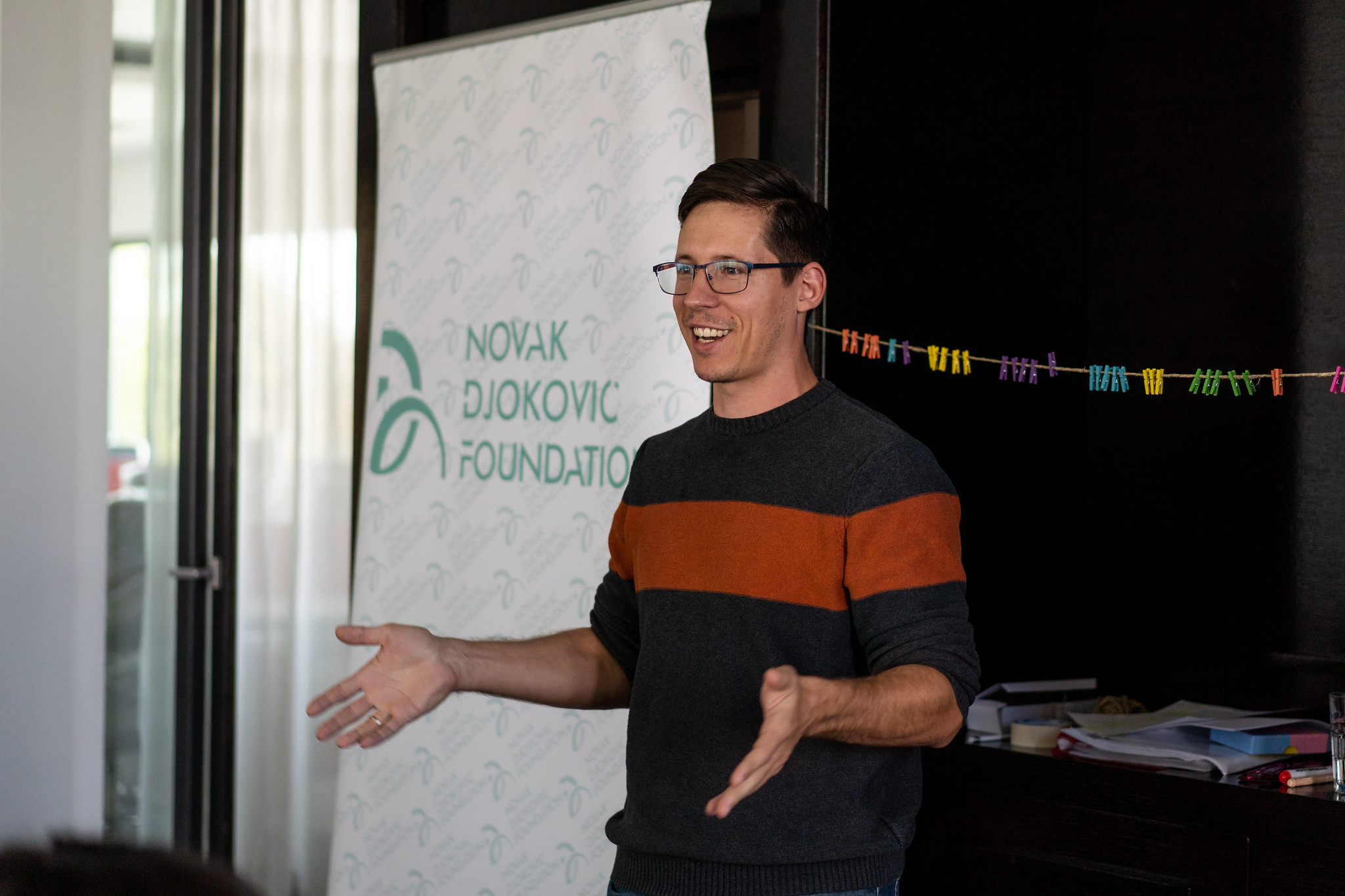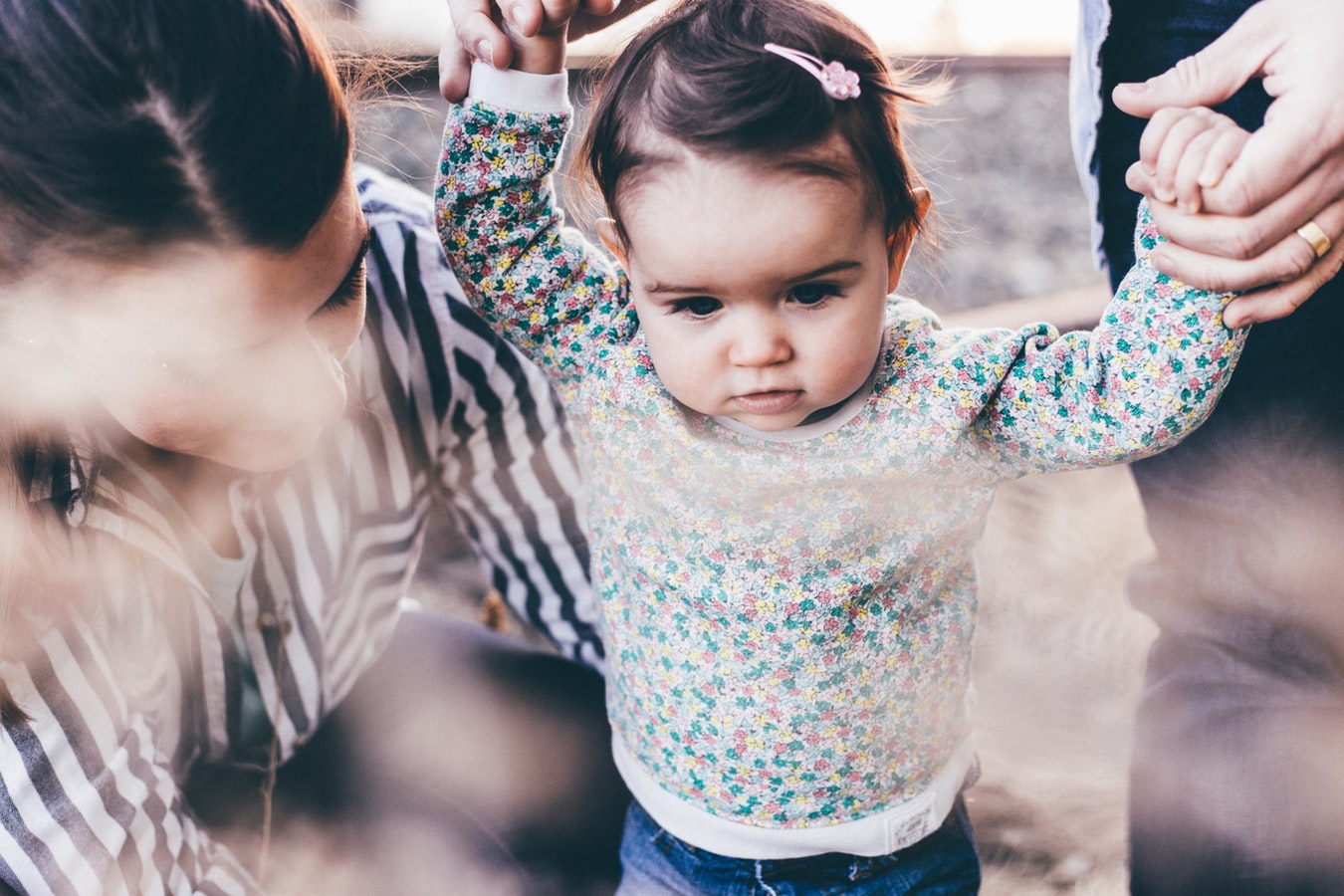A child does nothing on purpose, even when it shows attention-seeking behavior. The need for closeness and intimacy is innate and a key to a child’s development.
My son has fallen asleep and I can finally sit down and write. I’m tired, but I have a desire to share the experience with you. Like other children up to 3 years of age, Ilija seeks the physical closeness of mom and dad. If it was just proximity, it would be simple, but it also requires full, undivided attention all the time while he is awake. That is why it is not easy to find a space during the day when I would dedicate myself to my hobbies, interests, vacation, or writing this article. And without time for oneself, one can lose the opportunity for the stress release that accumulates during the week. Without that release, it is difficult to maintain patience with the child. As a result, the stress increases even more, because the child reacts negatively to the impatience of the parents, and so on in a circle.
Where does so much attention-seeking behavior in small children come from?
You’ve probably sometimes caught yourself thinking: “I’m having a hard time, I’m tired, can’t he/she leave me alone and play alone for a while?”
In the first two and a half to three years, it is important for the child to have one or more caring people with him with whom he would maintain physical closeness and emotional intimacy. It doesn’t have to be just a parent. So grandparents and other family members are an important source of help and support where they can get involved and when they can. If for a number of reasons, you cannot include an extended family in caring for a child, I will tell you why the physical and emotional closeness of the parents is important to the child. You will find their behavior more acceptable if you understand the meaning.
A child does nothing on purpose. The need for closeness and intimacy is innate; we have all gone that way. Not only is it innate, but it is also crucial for a child’s development.

A child does nothing on purpose, even when it shows attention-seeking behavior. The need for closeness and intimacy is innate and a key to a child’s development.
How does parental closeness affect a child’s development at that age?
With their presence, primarily their emotional reactions, parents help the child to:
- learn to regulate their emotions, especially those that are strong (for example in stressful situations);
- understand his inner states (hunger, thirst, fatigue, cold);
- build an image of the world and relationships around him (which forms the basis for a sense of belonging and security throughout life);
- establish a basic relationship of trust and acceptance in relation to the parent, other children and people (which makes him open to connecting, socializing and contacts with others throughout life);
- build an image of himself as worthy of parental attention and love (which is the basis for self-love and self-confidence throughout life) and
- see the connections and relationships between various things and phenomena which expands the child’s experience and accelerates intellectual development.
Being a parent means a huge responsibility. People who take care of a child, shape his personality. Just imagine the opposite outcomes of the development points I have listed and it will be clear to you how much responsibility is involved. I don’t want to scare you. A perfect parent/caregiver doesn’t exist. The developmental theses I presented are a result of a child’s repeated experience in relation to the parent during the first three years of life.
Mistakes happen and will happen, but what counts is the predominant style of your reactions.
More precisely, it is important how consistent, timely and accurate your answers to your child’s needs are.

Jovan Komlenac, facilitator of the Support, not perfection program: “The attention-seeking behavior is just a reflection of a child’s innate need for physical and emotional closeness.”
It’s nothing you don’t already do. At the level of concrete behavior, it means being present; to recognize when a child is scared, sad, angry; to recognize why he feels that way in a given situation; which needs; to help the child get through unpleasant emotions; and to keep calm in everything. If the parent is upset, he/she will not be able to calm the child. When you’re calming a child, the tone and intensity of your voice, facial expression and body position are more important than words. So many non-verbal signs that a child unconsciously reads and absorbs.
What helps me to calm down is to recognize and accept that I am upset in the first place. Then I ask myself a question and answer what is really important to me in that situation. And Ilija’s well-being is important to me. So for his sake, I manage to control my reactions.
How to survive your child’s tantrums? Psychologist and psychotherapist Smiljana Grujic suggests several useful techniques. Read them here.
When a child feels safe and loved, he can freely explore the environment and learn by playing. During the first three years of life, the child adopts the attention and interactions he had with his parents and incorporates them into the structure of his personality. Thanks to that, the child builds his personal glasses through which he observes himself and the world around him. They become the light that he carries within himself, the basic security that accompanies him through childhood and throughout life.

















